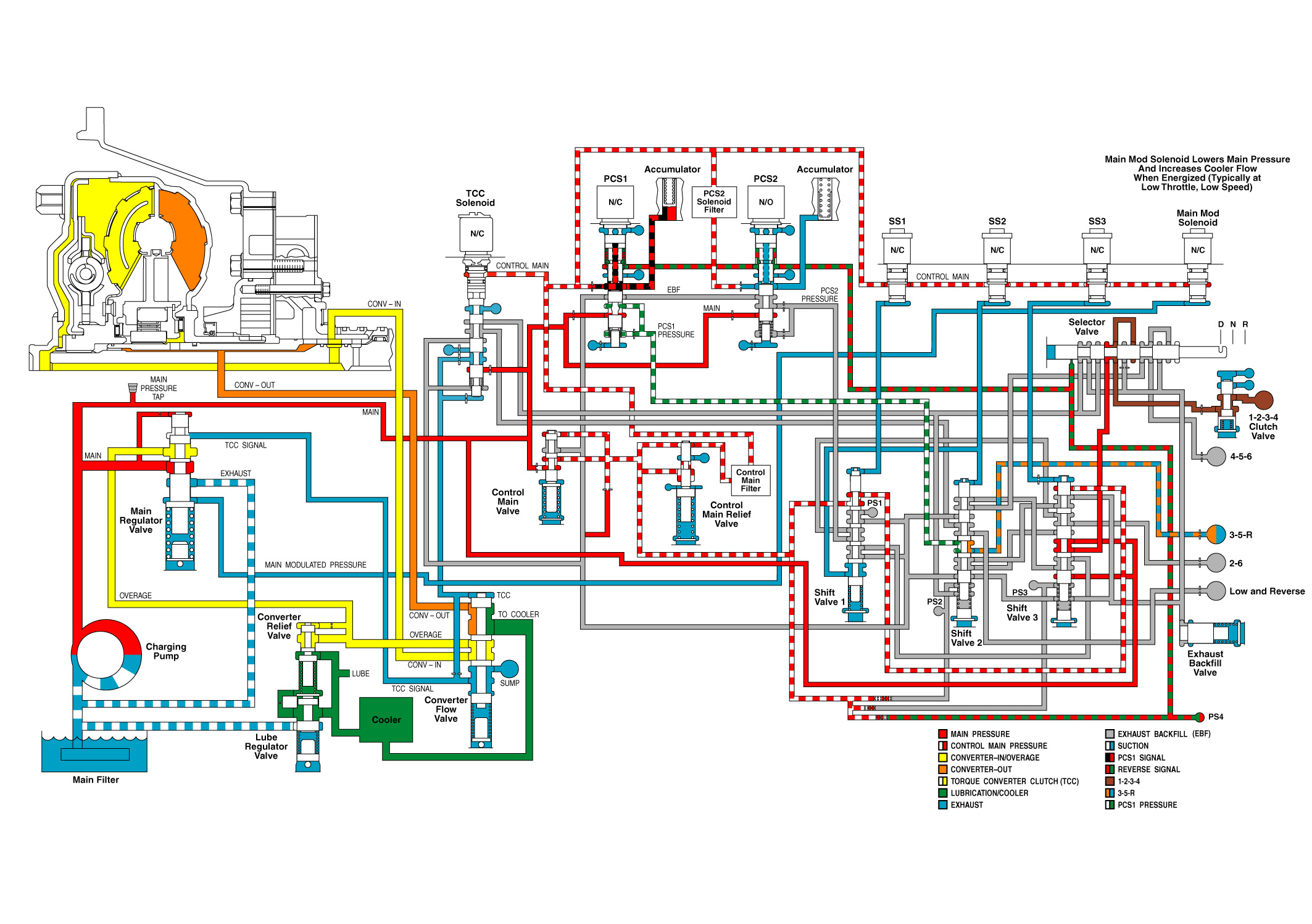If electrical power is interrupted while the transmission is in third range, SS1 and the torque converter clutch (TCC) solenoid (if TCC is applied) are de-energized. Shift valve 1 de-strokes, changing the exhaust path of the 4-5-6 clutch to exhaust backfill and the exhaust path of the 2-6 clutch to pressure control valve 2. Normally closed PCS1 continues to block the exhaust of the PCS1 signal pressure (signal remains control main). The signal pressure on top of pressure control valve 1 produces maximum PCS1 pressure, which is routed through shift valve 2 to the 3rd, 5th, and reverse clutch, keeping the clutch applied. With the manual selector valve in a forward position, main pressure continues to feed the 1-2-3-4 clutch through shift valve 3 and the manual selector valve. The combination of the 1-2-3-4 clutch and the 3rd, 5th, and reverse clutch applied keeps the transmission in third range for limp home capability. If the TCC is applied, the TCC solenoid de-energizes, causing the TCC valve to de-stroke, exhausting pressure from the top of the converter flow valve. The converter flow valve de-strokes, redirecting main overage to converter in and converter out to the cooler. The TCC is now released.
Third Range - Limp Home

